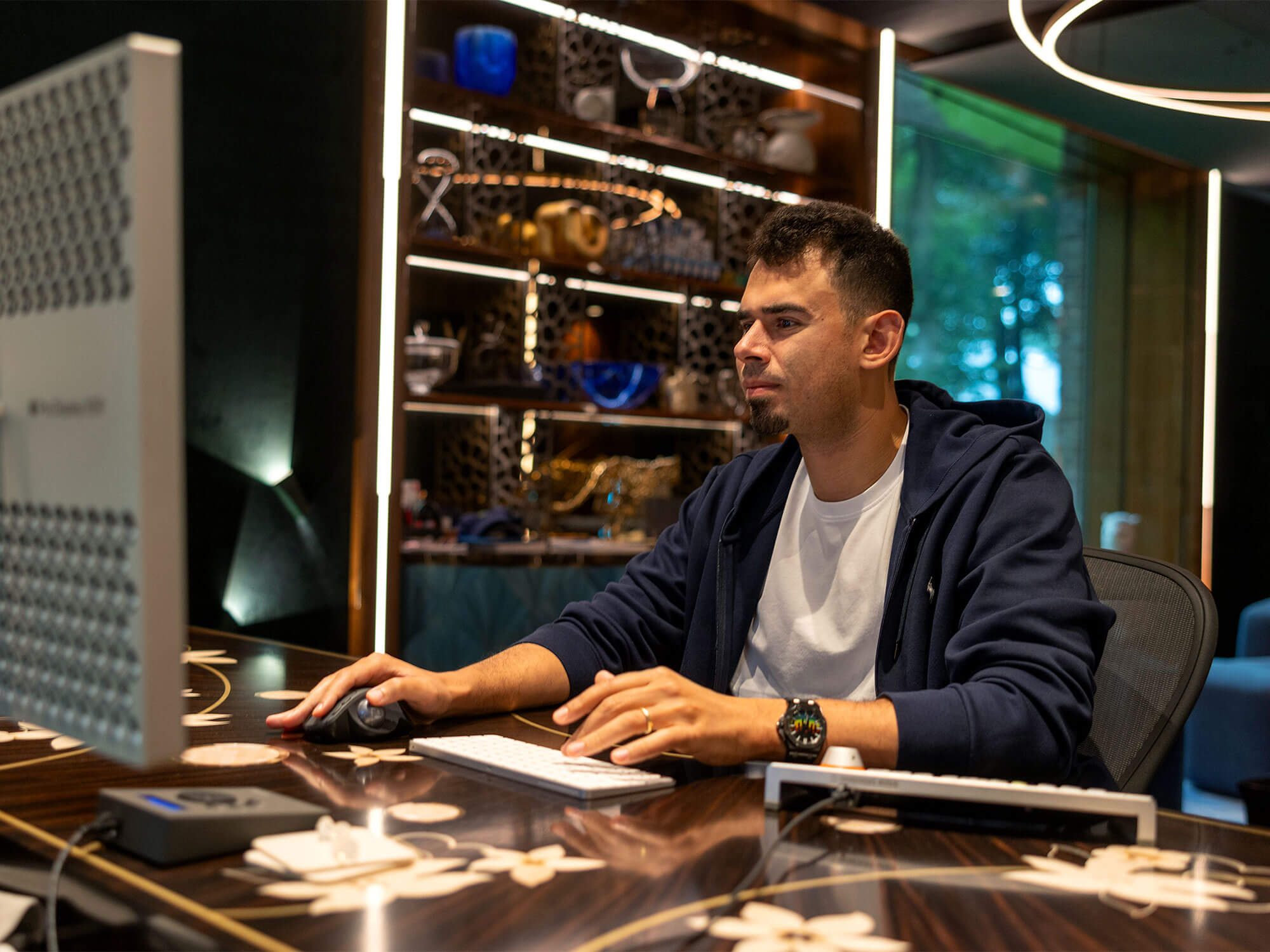
AFROJACK: “It’s possible to achieve success in the music industry if you abide by certain disciplines and rules”
The legendary EDM DJ and producer wants to support and educate the next generation of music makers – and he’s built an out-of-this-world studio to do it.
Image: Frits Van De Clips
Nick Van de Wall – known the world over as AFROJACK – is one of EDM’s most prominent DJs and producers. With a career stretching almost two decades, he’s racked up over 388 million streams, taken home a Grammy and a number of other industry awards, and become a regular headliner at mammoth festivals such as Tomorrowland, EDC, and Ultra.
With all that under his belt, you might think the Dutch-born DJ would be content to sit back and enjoy the fruits of his labour. But Van de Wall is not one to stay idle long. In fact, he’s been quietly working on a new studio, with a bold vision – to bring all the aspects of a modern music career under one roof, not just for himself, but for the next generation of producers and DJs.
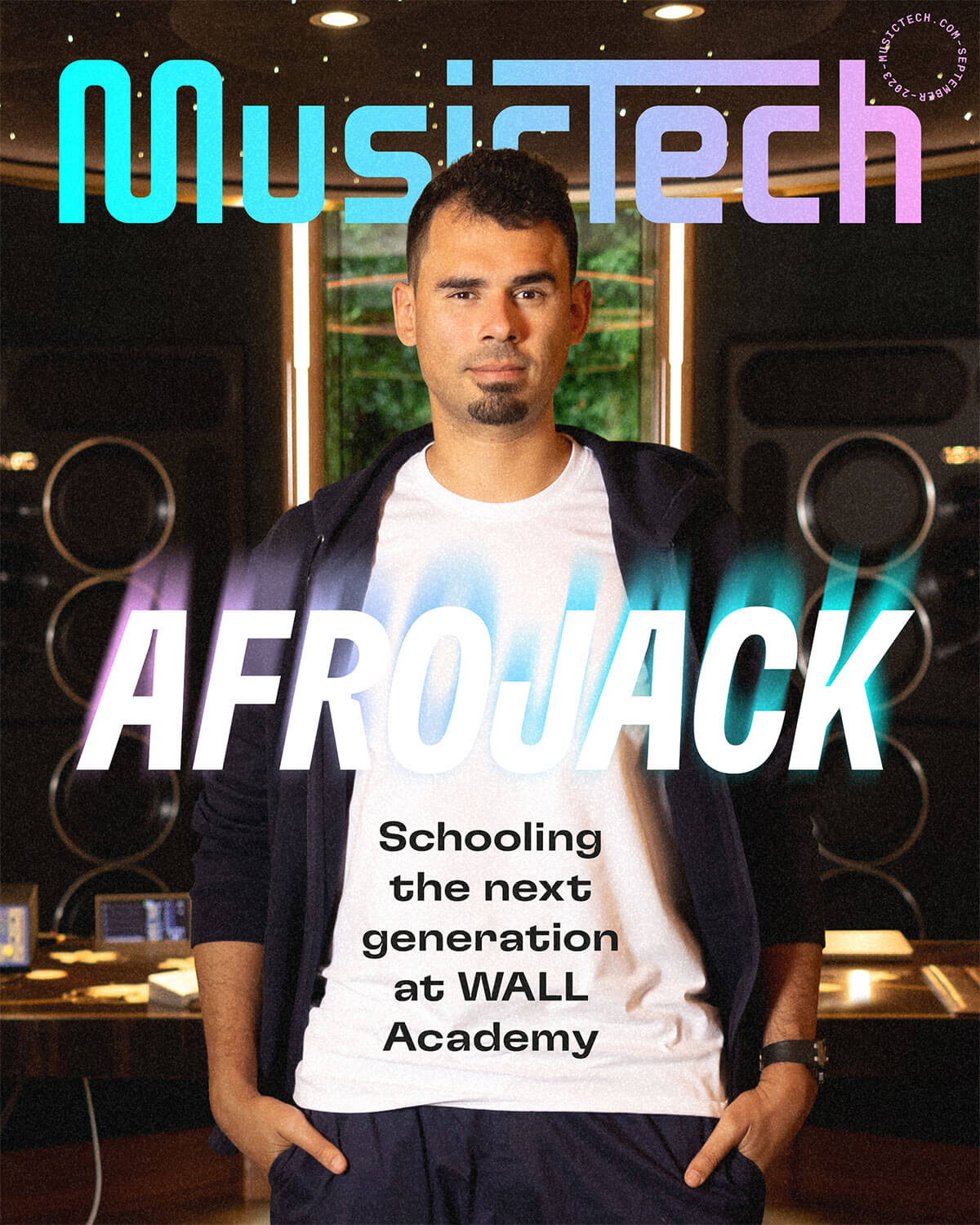
“My focus is on the long term,” says Van de Wall. “Bugatti’s, Lamborghini’s, all that stuff is fun, but it doesn’t add up to anything – a car is a car, but a studio can give so much to so many people.” It’s a philosophical view for a man married to Elettra Lamborghini, heiress to the legendary car manufacturer bearing her family name; when Van de Wall says he prizes studios over automobiles, he means it.
Setting his sights on a sprawling estate in the Belgian countryside, Van de Wall says he instantly saw the potential to build something truly special: “When I first walked through, it was literally just horse stables, sheds, and exposed brickwork – but I could envision the entire place. I was like ‘Hey, this spot for cleaning horses has the perfect dimension to be a studio’. The previous owner was looking at me like I was fucking crazy.”
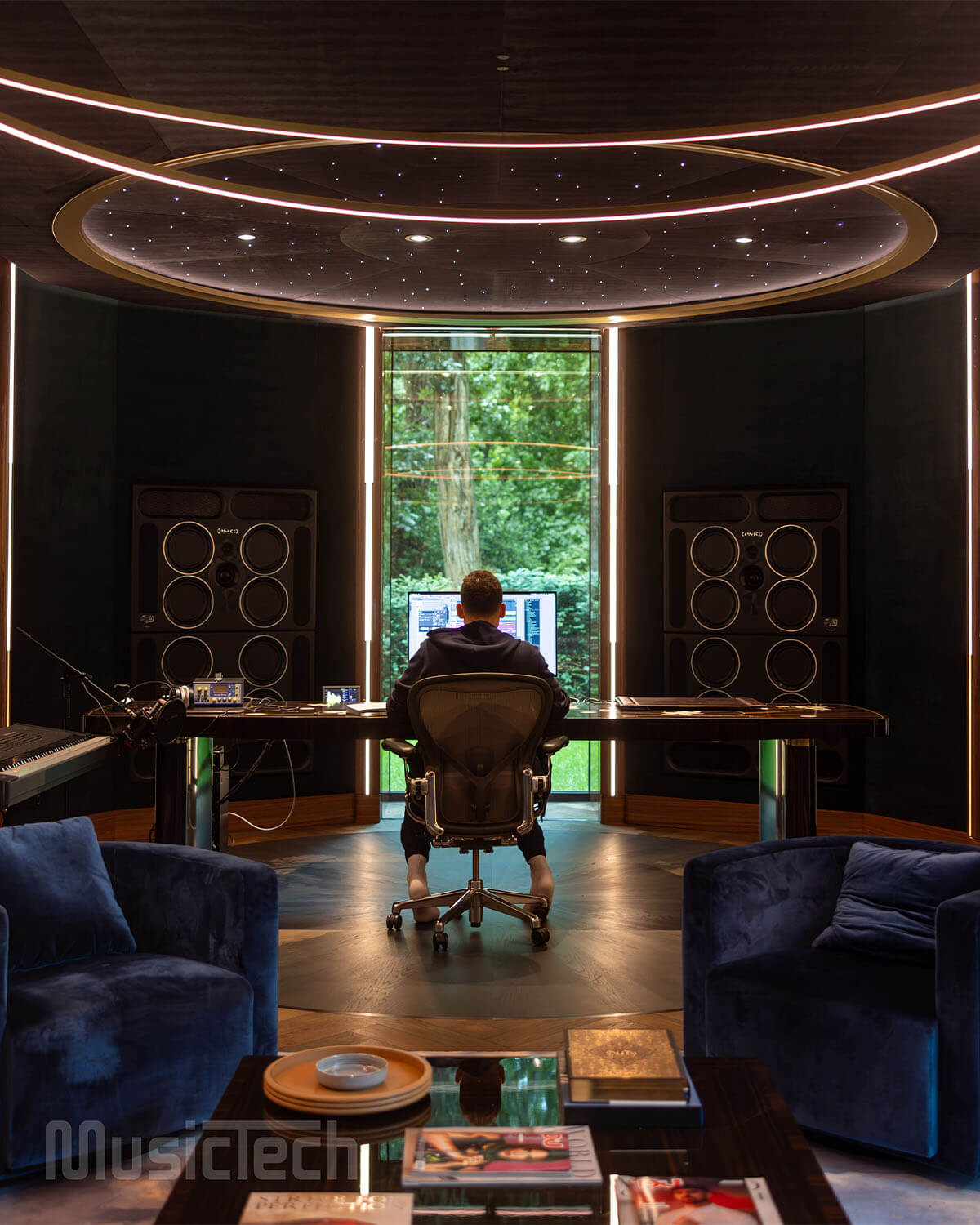
Now, after nearly three years of construction work – involving meticulously planned renovation, remodelling, and acoustic treatment – Van de Wall’s vision has become a reality. He’s now officially cut the ribbon and opened the doors of the new headquarters for his WALL Recordings label and artist development company.
“It’s sort of like a little creative factory,” says Van de Wall, with a smile that suggests his musical talent may be eclipsed only by his talent for understatement.
Sitting within an 800,000 square foot estate near the Dutch-Belgian border, and next door to the Grenspark de Kalmthoutse Heide nature reserve, Van de Wall’s studio complex encompasses three separate buildings, offering eight state-of-the-art recording and production studios; green screen stages for livestream performances and music videos; photography studios; office spaces; meeting rooms; sleeping quarters and kitchens; and even a wellness centre with spa, pool, gymnasium, and meditation room.
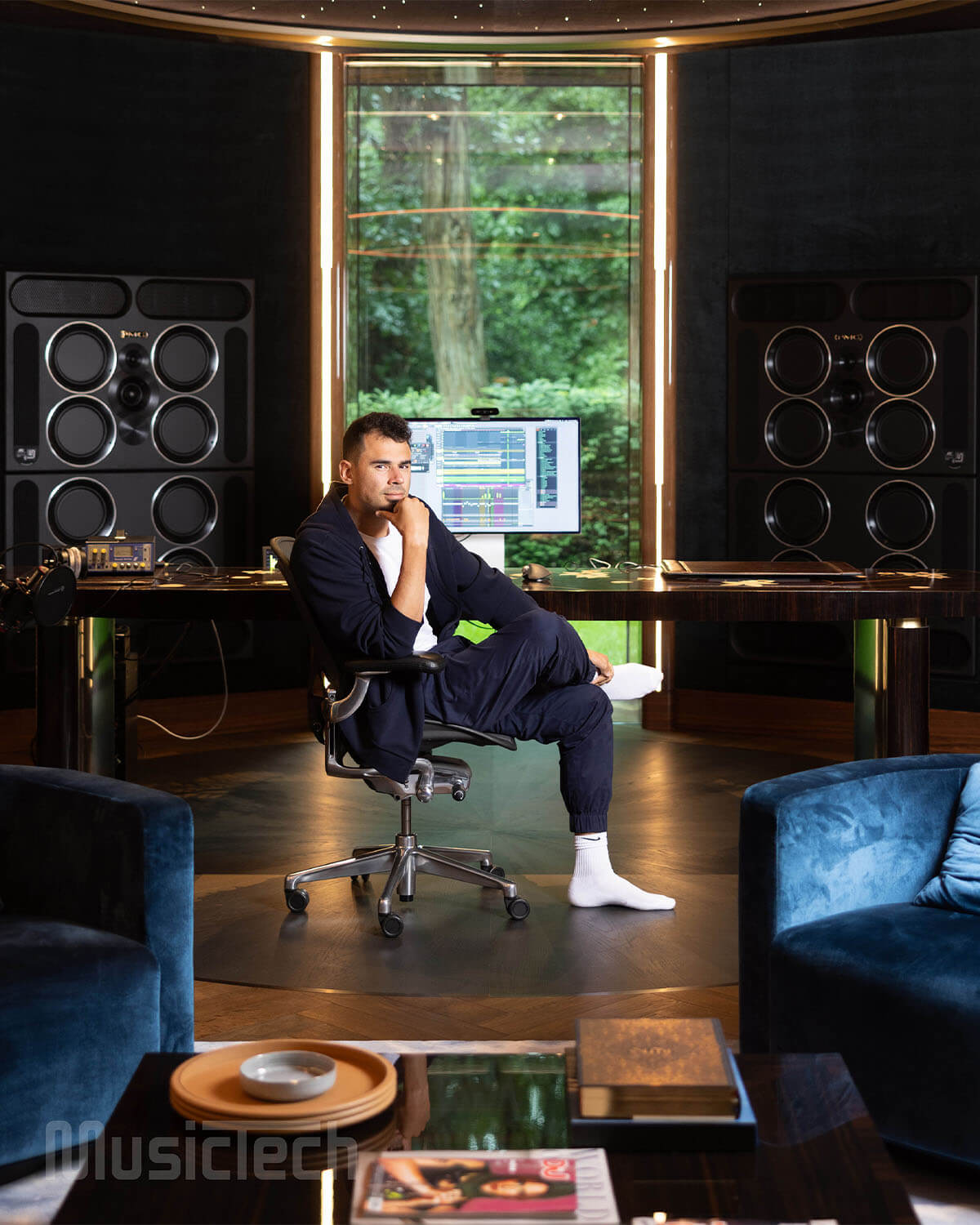
This is no mere vanity, however, amazing though the facilities might be. Van de Wall says his goal is not to cater to elite producers who have already ‘made it’, but instead to offer a holistic creative space for emerging talent.
“DJs, especially in the EDM scene, get paid very well,” says Van de Wall. “Why is no one using that money to reinvest in the company side of things? And not just investing in your own brand, but in younger talent. So, my thinking was: ‘I can have everything right here. I don’t need to go anywhere else to do a photoshoot or record a set – and, if I can have it, I can also share it for free with young artists.’ That’s why I built this.”
Considering his previous personal studio was situated in the heart of Amsterdam, an estate nestled in the countryside, sitting next to a vast nature reserve, is a dramatic change of pace. However, when it comes to working with young producers, Van de Wall says the temptations of city life can be more distracting than inspiring.
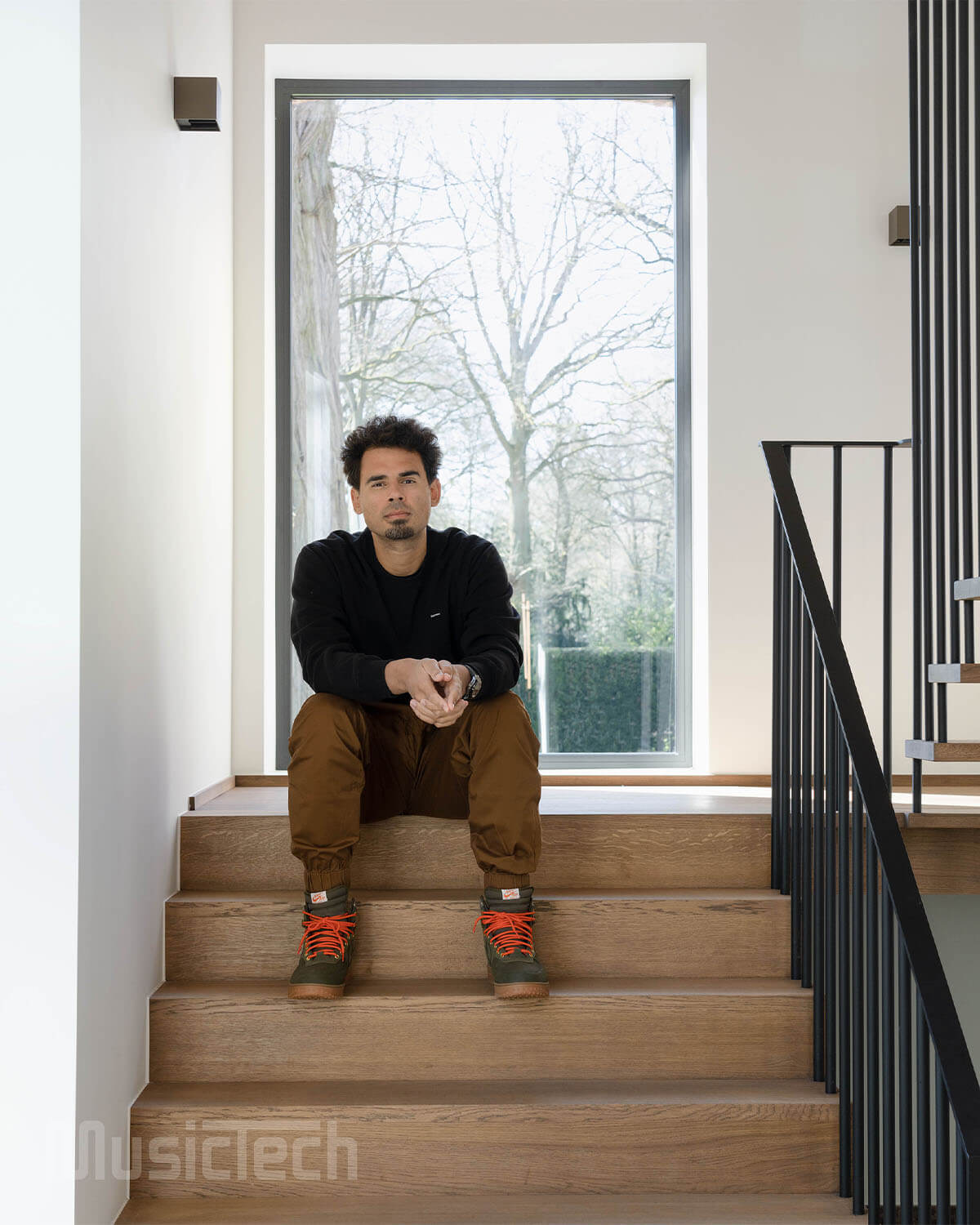
“Everyone that goes to Amsterdam wants to see Amsterdam,” he says ruefully. “So, you do a session for a few hours, get to know each other, and then they want to go out and get drunk and smoke weed.”
In comparison, Van de Wall says a more remote location provides the focus people need to truly lock in with their music. “It’s almost like a retreat,” he says. “There are studios and creative facilities everywhere, and there’s a pool and gym – so, you can either be healthy or you can be productive. There’s nothing else to do!”
Mitigating distractions is only part of the artist’s strategy to motivate his guests. “I wanted to create an inspirational space for young artists,” he says. “I wanted to make it so nice that, when people come here, they’re motivated to work harder – so that they can come back again.” With its grand architecture, lush design aesthetic, and world-class studio gear, it’s hard to imagine any young producer not wanting to come back for more.
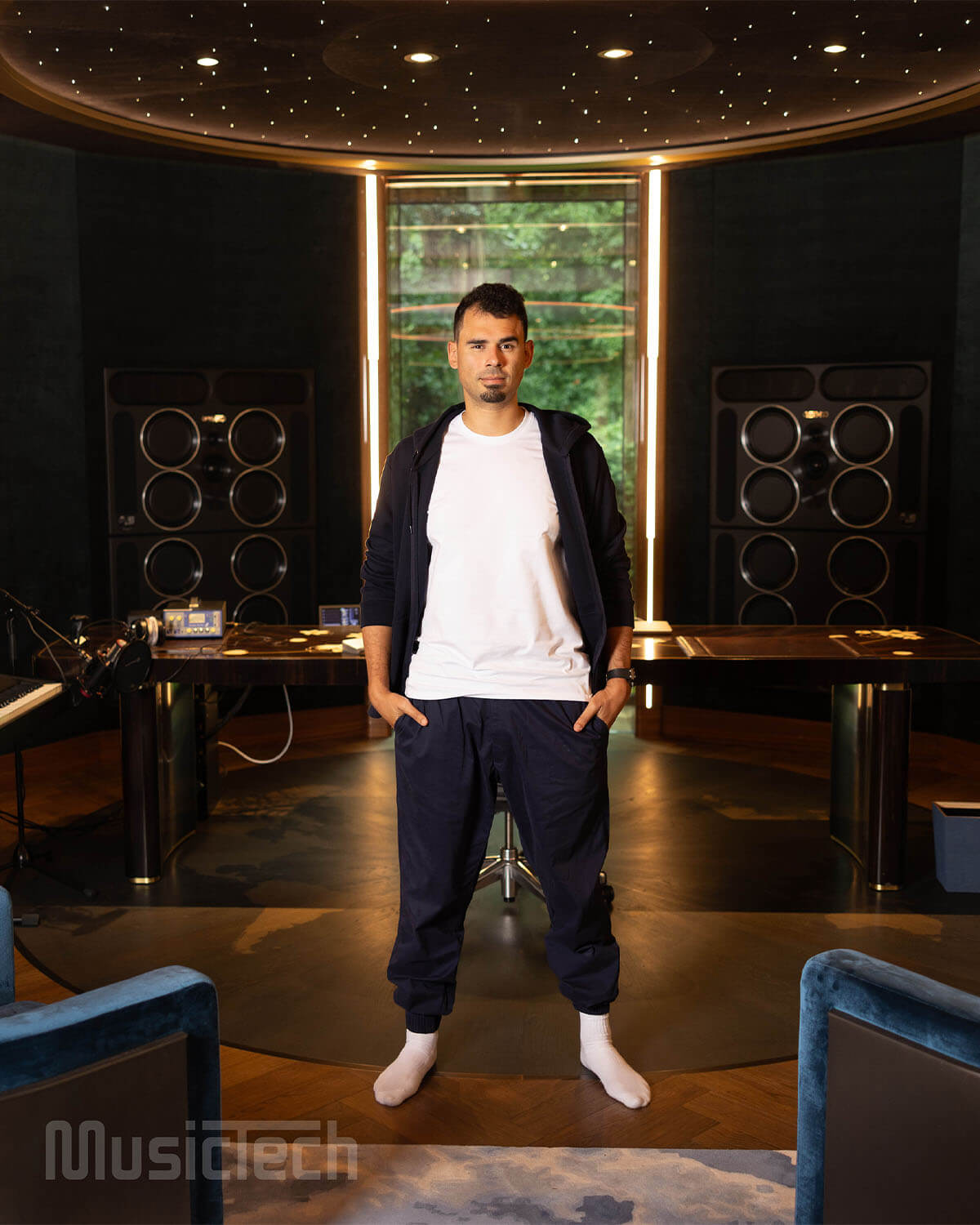
The centrepiece of the complex is Van de Wall’s personal studio. With its glittering ceiling and Art Deco-inspired furnishings, at first glance, you could easily mistake it for a luxurious cocktail lounge rather than a recording and production space. Look closer and there’s some serious sonic power under the hood – four sets of PMC QB1 speakers ($125,000 per pair), paired with a Lynx Hilo converter, and a Monitor-ST1 Control System from Dangerous Music.
What you won’t see in Van de Wall’s personal studio are cluttered racks of outboard gear and needlessly huge mixing consoles. “One thing I don’t like about major studios is that there’s buttons everywhere,” he says. “They have all the equalisers and compressors, there’s always [an Empirical Labs] Distressor – no one ever uses it but it’s everywhere – but, for me, if it’s not being used most of the time then I don’t want to see it. I want the sound quality of a production studio but the feeling of a comfortable living room.”
His personal studio may be the pièce de résistance, but the other seven studios certainly pull no punches. Sporting a range of different layouts – some with vocal booths, some with live rooms – they boast top-of-the-line monitoring systems, microphones and, yes, outboard compressors and EQs.
However, Van de Wall’s ambitions go far beyond providing gorgeous facilities for emerging talent. He has a wealth of insider knowledge about the music industry gained from a career spent at the top of the international DJ circuit. This, he says, is what he really wants to share, and he’s doing it by designing an educational programme called WALL Academy.
“It is possible to achieve a level of success in the music industry if you abide by a certain discipline and certain rules,” Van de Wall says, adamantly. “A lot of people will say ‘it’s all luck.’ Well, sure, luck is part of it; playing the Tomorrowland mainstage as a headliner requires some luck. But a base level of success, like playing local clubs or having enough records out that people will buy tickets to see you on tour, this is completely possible to do.”
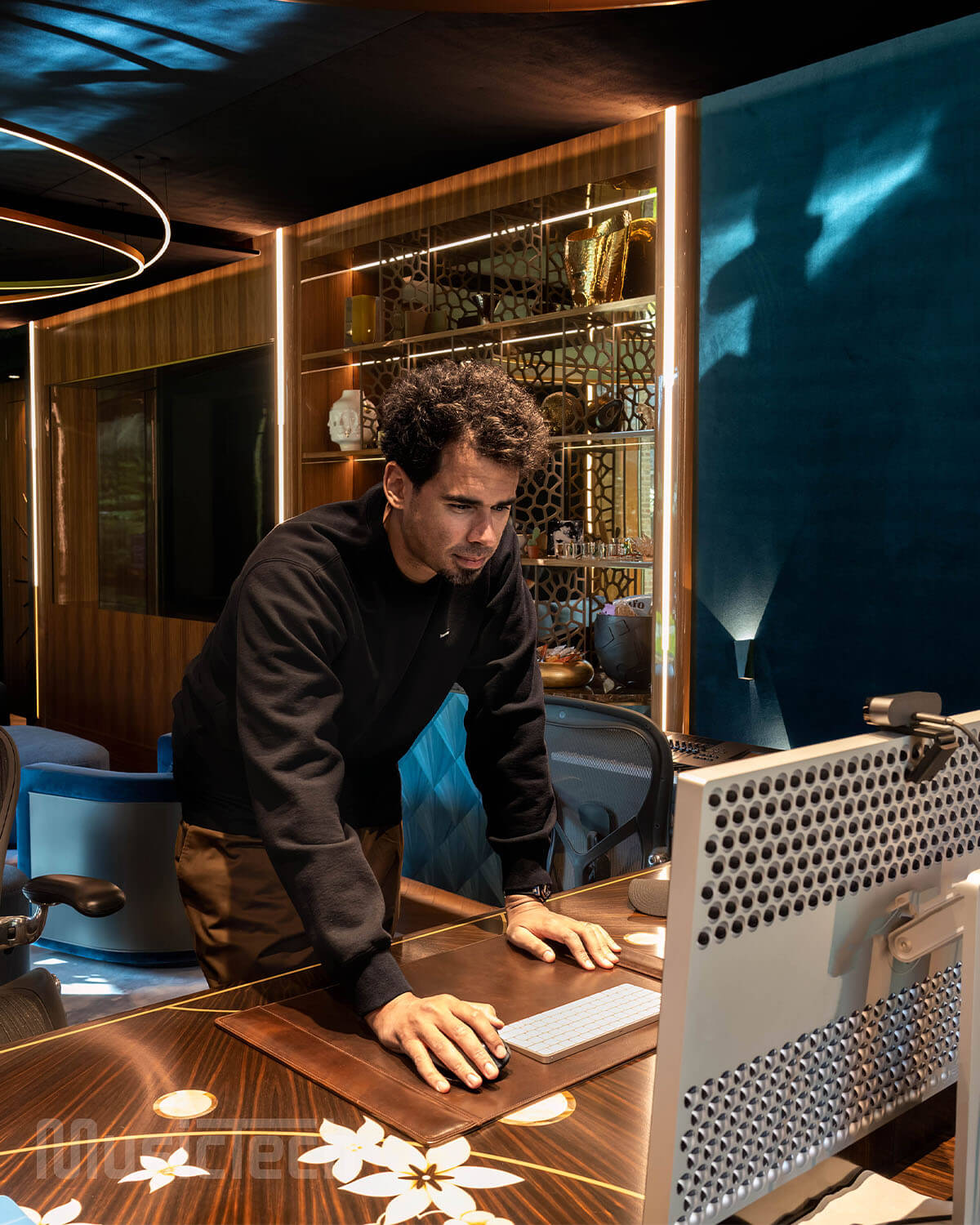
The first seeds of WALL Academy were planted years ago when Van de Wall began conducting monthly demo-streams. Here, he’d encourage unsigned producers to send in their tracks and get live feedback directly from the man himself.
“I started doing the demo-streams because I know there’s talent out there,” he says. “I know that if these people aren’t successful, it’s not because of a lack of talent – it’s because of a lack of knowledge about how the music industry works, how to network, how to get your records played.”
When it comes to a modern music career in the 2020s, one of the magic ingredients that Van de Wall cites is the all-important ‘hype’ factor. “I know artists with more than 10 million monthly listeners on Spotify who are not getting anywhere because no one cares. At the same time, there are artists with almost no monthly listeners and they’re playing fucking everywhere – because they have hype.”
Hype can often seem like a vague concept that some artists manage to stumble upon. But Van de Wall says a core part of what he wants to teach young producers is how hype and the art of self-promotion can be defined and systematically built up through conscious effort.
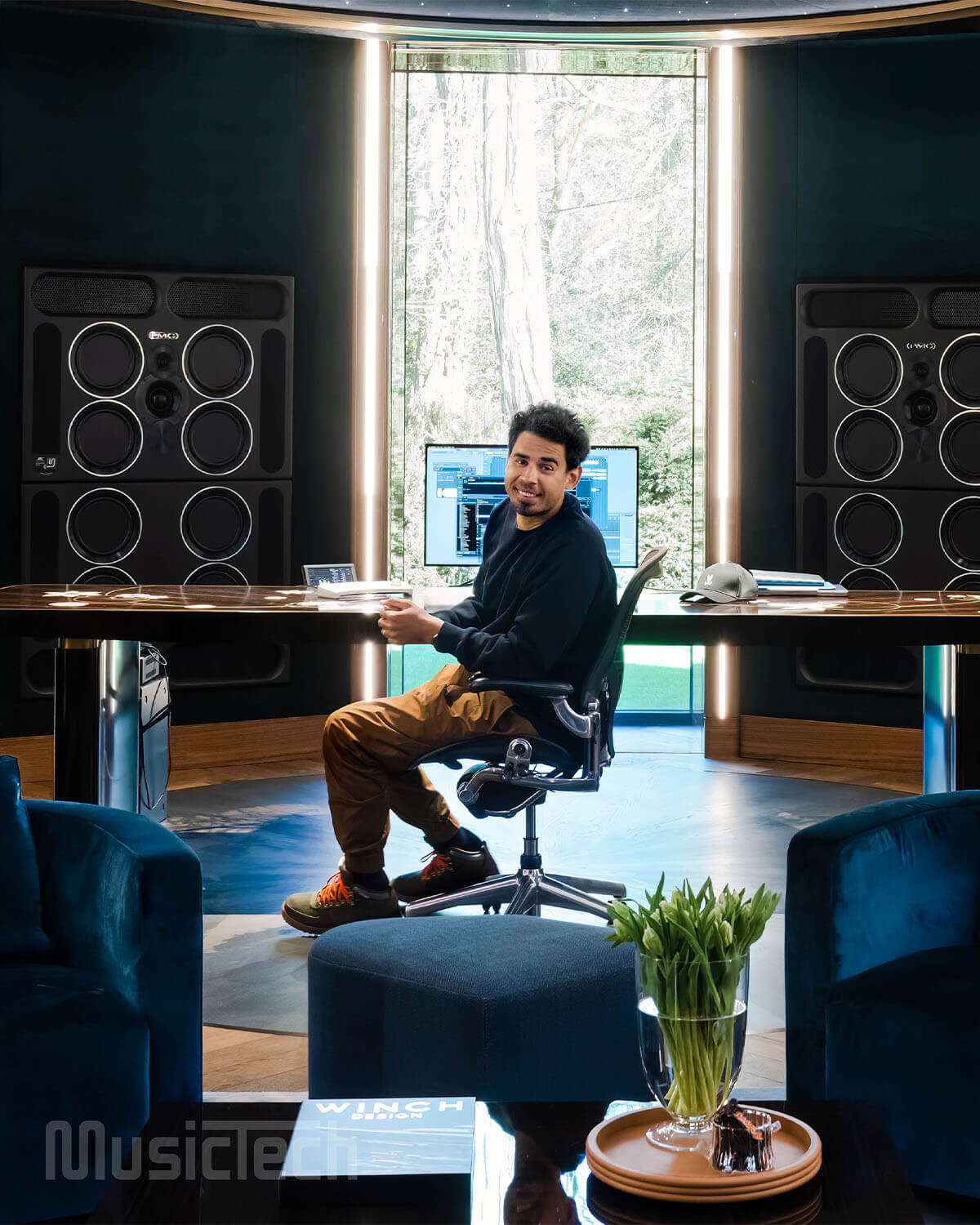
“We’re building an academic package on that side of things because there are so many tutorials on YouTube about how to make music, and there are so many tutorials about how to be a successful entrepreneur. Even though you’re going to need both if you want to make it in a creative industry, for some reason, no one thought to bring these two things together. So that’s a really big part of what we’re trying to teach.”
One of the biggest shifts producers are facing is the increasing prevalence of AI-powered tools. Far from being worried about the tech, Van de Wall says he sees a number of advantages for young DJs and producers looking to get their ideas noticed by labels.
“There are people that want to write a song but can’t afford to get a vocalist to fly in, sit with them, and sing it,” Van de Wall says. With the aid of generative AI, he says, producers can “have an idea, go to a website, upload their idea, and get back a vocal sung really well in a voice that sounds like Chris Martin or Drake.”
Rather than being the finished product, Van de Wall says these AI-generated vocals are a way to elaborate a song and give record labels a better picture of what the finished track could sound like – similar to how screen composers make audio mock-ups using sample libraries before recording a full orchestra.
“You’re just giving the musician more opportunities to get their ideas straight,” he points out. “By the time those ideas get up to the label, the label loves it and then they can pay for an artist to sing it even better – but that idea might never have gotten across if they didn’t have access to AI”
In addition to passing on knowledge and preparing producers for the future, WALL Recordings can also be seen as a very deliberate attempt to ‘pay forward’ the leg up that Van de Wall says he got from fellow EDM icon, David Guetta, in the early days of his career. “The first four or five years of my career I wasn’t signed to anyone,” he recalls. “I was building things up completely solo, and then Dave approached me and suggested we work together.”
In what he describes as a very simple management deal, Van de Wall gave Guetta a small percentage of his earnings in return for promotion, remix opportunities, and opening slots at gigs. “My first Grammy, a remix for Madonna [2009’s Revolver (Madonna vs. David Guetta One Love Remix), I did with him,” Van de Wall says. “He could have done that remix by himself, but he did it with me, purely because I was his guy, and he genuinely liked my music.
It was the start of a fruitful creative and professional partnership – the pair’s track, Hero earned them yet another Grammy nomination in 2021 – and one that Van de Wall hopes to replicate at WALL Recordings: “My thinking was – ‘how can I take that luck that I had with David, and make it available to young artists? How could I take that concept and make it into a company?’ That’s why we started focusing on artist development.”
It’s not all altruistic either. After nearly 20 years making music, Van de Wall says working with young producers and DJs is the creative shot of adrenaline he needs to keep his own process from becoming routine.
“I’ve been producing for such a long time and things can get boring very quickly,” Van de Wall says frankly. “It makes it difficult, especially on the club music side, for me to start a new project and make something that will both work well and also get me excited. That is why I love producing with young people. Being surrounded by younger producers and seeing what they come up with inspires me; it keeps me creative, it keeps me happy, it keeps me excited.”
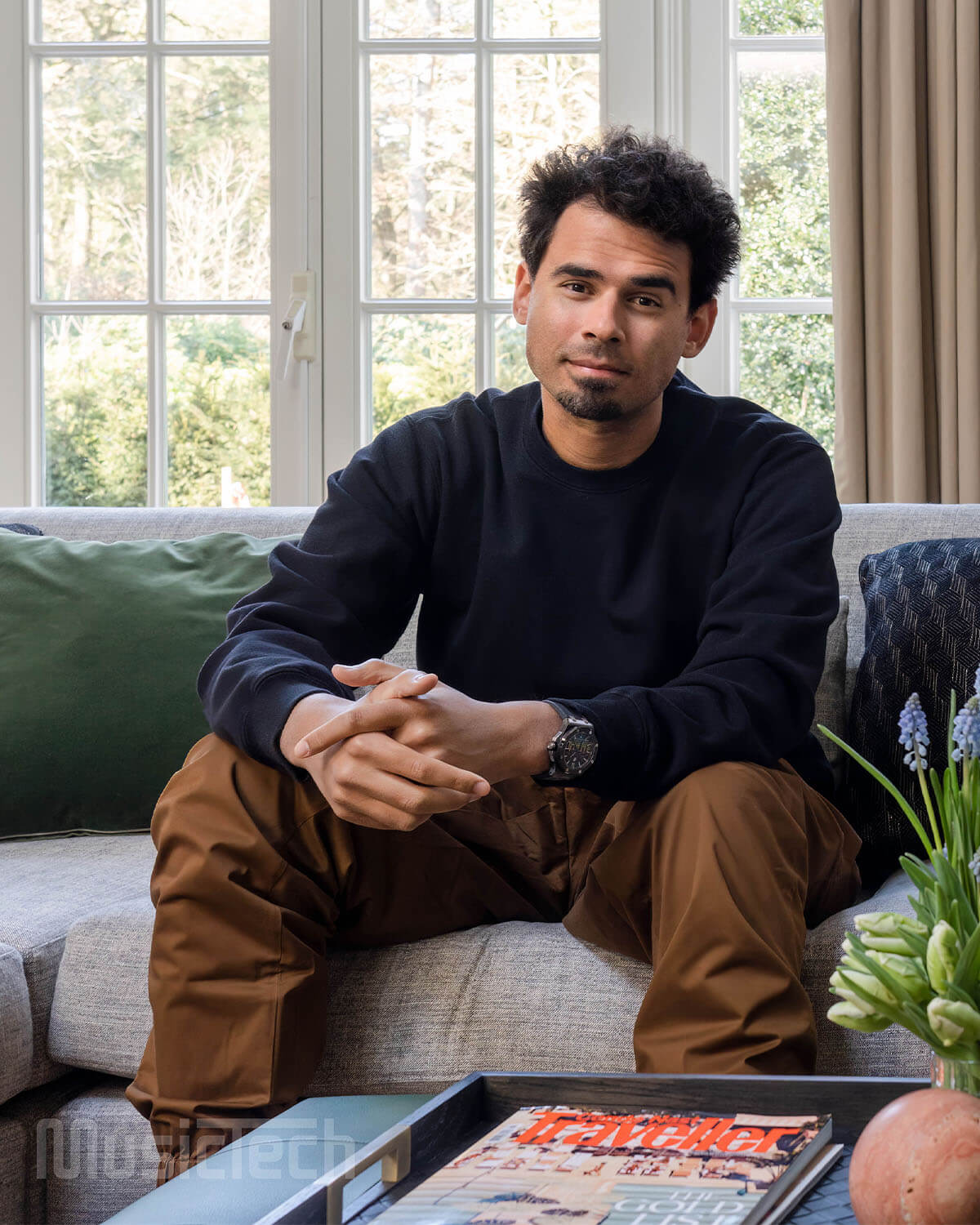
Underneath the desire to share his knowledge and the creative energy he gets from collaboration, there is another factor in all this: the simple joy of helping people realise their musical dreams. It’s a theme Van de Wall returns to often, both when he reflects on his own career and when he talks of the emerging artists he now surrounds himself with.
“The first time someone gets to perform or have their song played for 50,000 people… I remember the feeling. I remember when David Guetta played my records for the first time. The people I’m working with, it’s life-changing for them when I play their music at Tomorrowland and it costs me nothing – I have that stage all to myself, I could do an hour of my old music, or I can use some spots to promote someone new. Just a little effort and I can give life-changing experiences to others. That’s fun.”
Learn more about AFROJACK and WALL Academy at wallrecordings.com.
The interior of WALL Recordings studios is designed by Winch Design. You can find them on Instagram and at winchdesign.com.